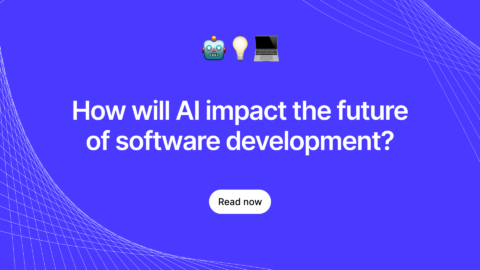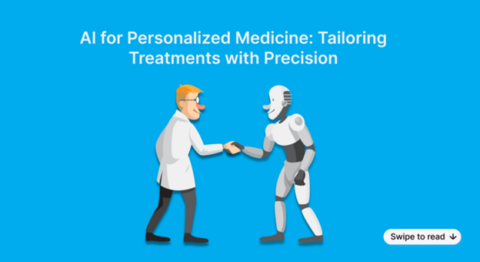Artificial intelligence (AI) has the potential to completely transform the insurance sector by delivering insightful data and enhancing operational effectiveness. AI systems can find trends, forecast customer behavior, and assist businesses in making better decisions by analyzing enormous volumes of data. With AI, insurers may enhance risk assessments, deliver individualized insurance solutions, and better understand customer needs. Additionally, AI-driven chatbots can speed up the claims process and provide rapid, easy client assistance. The adoption of AI in the insurance sector may enhance customer satisfaction and boost business profitability. This blog article will examine how AI can provide you with additional knowledge about the insurance sector.
What is AI?
AI stands for Artificial Intelligence, and it is a form of computer technology that is used to mimic human behavior. AI has been around for decades, but recently there has been a surge in its usage across many industries, including the insurance industry. AI can be used to automate tasks such as analyzing large amounts of data, predicting customer behavior, and providing personalized recommendations.
In the insurance industry, AI can be used to automate the processing of claims, identify fraud and assess risk. AI can also be used to better understand customer needs, optimize customer service, and develop more efficient pricing models. With its ability to process large amounts of data quickly and accurately, AI can help the insurance industry gain valuable insights into customer preferences and trends.
Benefits of AI in the insurance industry
AI is revolutionizing the insurance industry by providing valuable insights into customer behavior, market trends, and risk assessment. AI-driven analysis can help insurance companies create targeted policies that meet their customers’ individual needs. Additionally, AI-driven automation and analysis can reduce operational costs and streamline processes for insurers.
Accuracy: With AI, insurance companies can increase the accuracy of their risk assessments by analyzing large volumes of data quickly and efficiently. This helps them more accurately assess risk and price policies based on accurate predictions. AI also enables insurers to better understand customer behaviors, such as what products customers are buying, how much they are spending, and which trends are influencing consumer purchasing habits. This data can be used to create tailored policies that meet customer needs.
Automation: AI can automate processes such as claims filing and payment processing. Automation speeds up processes and reduces errors by eliminating manual paperwork, which in turn increases customer satisfaction. Finally, AI-driven analysis allows insurance companies to spot fraud more quickly and accurately by identifying suspicious patterns or discrepancies in a much faster manner than manual processes.
Some common applications of AI in insurance?
AI is being used more and more in the insurance industry as a way to improve decision-making and automate processes. AI can be used to automate claims processing, underwriting, risk assessment, fraud detection, customer service, and more. AI-based technologies can help insurance companies better identify risk factors and make more accurate predictions on which customers are most likely to claim. It can also be used to automate tasks such as identifying patterns in customer data and providing personalized customer experiences. AI can also be used to analyze massive amounts of data and provide meaningful insights into the insurance industry that can be used to optimize operations and strategies. Finally, AI can be used to detect and prevent fraud and other malicious activities in the insurance industry, helping protect both customers and insurers.
Gain more insight into the insurance industry!
By using AI to better understand their consumers’ needs and preferences, insurance firms may deliver more individualized services. AI may provide insights into consumer behavior through the collection and analysis of customer data, helping insurers better understand their clients and provide more specialized services.
Improving Underwriting:
Underwriting is the process of evaluating insurance applications and determining whether to provide coverage and at what price. AI has the potential to greatly improve underwriting in the insurance industry by automating many manual tasks and providing more accurate and comprehensive assessments.
Predictive modeling:
AI Predictive modeling uses machine learning algorithms to analyze large amounts of data and make predictions about future events. The process typically involves the following steps:
-
- Data collection: Collecting and organizing data from various sources, such as customer demographics, policy information, claims history, and other relevant data.
- Data preparation: Cleaning and preprocessing the data to ensure it is in a format suitable for modeling.
- Model selection: Choosing the appropriate machine learning algorithms and models based on the problem being solved and the type of data available.
- Training the model: The model is trained on the prepared data, using algorithms to learn patterns and relationships between the data and the target variable being predicted.
- Validation and testing: The model is tested on a separate set of data to determine its accuracy and make any necessary adjustments.
- Deployment: The trained model is deployed in production to make predictions based on new data.
Fraud detection:
AI can also be used to identify fraudulent claims by utilizing natural language processing (NLP) and computer vision technologies. NLP helps identify suspicious patterns of speech, while computer vision can detect visual anomalies in photographs and videos submitted with claims. This helps insurers reduce the risk of paying out claims that are not legitimate.
Market trends:
AI can be used to analyze market trends in the insurance industry, as well as competitclient’segies. AI-based algorithms can quickly process large amounts of data, enabling insurers to predict customer behavior and better understand market dynamics. This allows insurers to adjust their product offerings accordingly, ensuring they are always competitive in the market.
Automate customer service processes:
Artificial intelligence (AI) may be used to automate customer service procedures and provide prompt, precise solutions to client inquiries. Since clients do not have to wait for extended periods for a response from customer care agents, this helps to increase customer satisfaction. Customers may be served more effectively by customer care representatives thanks to AI’s ability to instantly with pertinent information.
Risk assessment:
Risk assessment is a critical aspect of the insurance industry, and AI can play a significant role in improving the accuracy and efficiency of risk assessments, and making a better understanding and managing risk, leading to more informed decision-making and more stable and profitable business.
AI algorithms can analyze large amounts of data on various factors that can impact an insurance policy, such as natural disasters, crime statistics, and demographic information.
AI algorithms can analyze crime statistics to identify high-crime areas and adjust pricing for policies in those areas. By taking into account a wide range of factors, AI can provide a more comprehensive and accurate assessment of risk, enabling insurers to make better decisions and provide more accurate quotes.
Final Thoughts
AI provides numerous benefits to the insurance industry. It enables insurers to make more accurate predictions and offers an efficient way to analyze customer behavior. Additionally, AI-driven automation can speed up processes and reduce errors while helping to identify fraudulent activities more quickly. All of these advantages make AI a valuable tool for insurers looking to gain insight into the industry and make more informed decisions.










